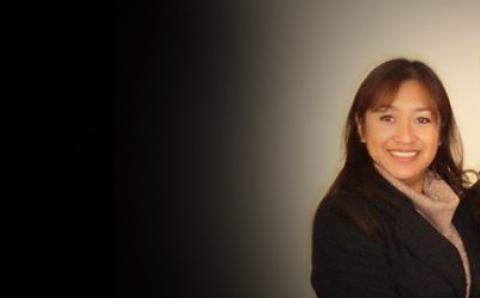As Reformed Christians, how do we approach critical and controversial contemporary issues? There really are only two possible choices. We can use our faith as a reason to deflect consideration of these issues, or we can use our faith as a prism to fully engage them. Frank, honest discussion and faith are not mutually exclusive. They are interdependent and lie at the heart of our commitment to the 17th-century concept semper reformanda—always reforming.
This issue is not new to the Christian Reformed Church or to the broader church. Throughout history, the church has struggled to accept open and honest dialogue. There have always been Christians who have argued that such and such an argument must be rejected because it violates accepted theological norms. Very often, advances in knowledge have been put forward that were rejected by sincere Christians but ultimately were proved valid and accepted by the church. The key to whether or not we accept a “new” idea rests on the willingness of Christians to examine it in light of our faith before a decision is made.
The 17th-century case of Galileo, a devout Christian, is a telling example of the church’s unwillingness to engage in honest, open investigation of an argument. Most astronomers and Christians of that time accepted the geocentric argument. Originally the church had been cautiously open to Galileo’s heliocentric position. But, eventually—out of fear—the church establishment turned against Galileo. Ultimately the Inquisition found him guilty of heresy, and Galileo spent the rest of his life under house arrest. Galileo was condemned not because his scientific position was discredited but because the Pope and the established community of astronomers felt their power and prestige were being challenged. Today no one denies that the earth revolves around the sun. But 300 years ago, the church relied on an argument that still is used today: we have years of doctrine behind us, so there’s no reason to investigate any further.
When our Reformed faith and the Dutch ancestry of many members of the CRC were intimately entwined, it was somewhat easier to be of one mind on a whole host of issues. Our insularity provided comfort and security. It is much more difficult today to maintain unity as the denomination is in the midst of fundamental demographic change. We are losing members, especially among our young people. We now have more gay members. Transfers from other denominations have broadened our cultural, ethnic, and racial configuration. Centers of Dutch culture and ancestry are declining, and the racial and ethnic composition of the denomination is changing. It is a fact that after about 160 years, the demographic reality of the Christian Reformed Church is not what it was for many of our parents and grandparents. That “cocoon” is gone forever. Perhaps we have been too wrapped up in our historic cultural identity, and God is now telling us to deal with a new reality as mature Christians.
Our faith is not about ethnicity, race, age, or gender. It is about fidelity to Christ as he is revealed in Scripture. “There is neither Jew nor Gentile, neither slave nor free, nor is there male and female, for you are all one in Christ Jesus” (Gal. 3:28). This means approaching every issue that affects us all with open, contrite hearts. It means applying our faith and our intellect to pressing contemporary issues without prejudging them. If we do not do that, our denomination’s future is indeed bleak.
So let’s learn from the example of Galileo. We do not have to accept every new argument that is proposed, but we do need to honestly and openly investigate every new argument, in keeping with semper reformanda.
Web Questions
- Meyer identifies one issue where there has been an apparent conflict between our interpretation of Scripture and the results of scientific research: the revolution of the earth around the sun. Identify some others that have cropped up since the time of Galileo. Summarize some of the arguments on both sides of the issues you have identified.
- Do you agree that “frank, honest discussion and faith are not mutually exclusive?" Why or why not? What are some examples?
- The Reformers taught semper reformanda—that we should always be reforming so that we grow closer and closer to what King Jesus would have us be, as revealed in the Scriptures. Does that tenet have an element of risk as well? Is change always positive or might it sometimes lead us into trouble—away from God’s will? Give some examples. Is change worth the risk?
- Meyer says that “the key to whether or not we accept a ‘new’ idea rests on the willingness of Christians to examine it in light of our faith before a decision is made.” Is that true? Can you give examples either way?
- Meyer asserts that Christian Reformed folks used to live in a cocoon, sharing one mindset that made it easier to agree on most issues. Do you believe that’s true? Either way, what issues do we now need to face as we increase in diversity within our denomination? How shall we tackle them?
- Does “approaching every issue that affects us all with open, contrite hearts” mean that we must always accept every new idea? May we reject new ideas because they are contrary to Scripture? And if we disagree on whether an issue is indeed unbiblical, how should we proceed?
- What role should our creeds and confessions play in sorting out issues that challenge our current beliefs?
About the Author
Steven E. Meyer is retired from service in the federal government. He consults, lectures, and writes on political, economic, and security issues primarily in the U.S., Europe, and Russia. He is member of the Christian Reformed Church in Washington, D.C.








